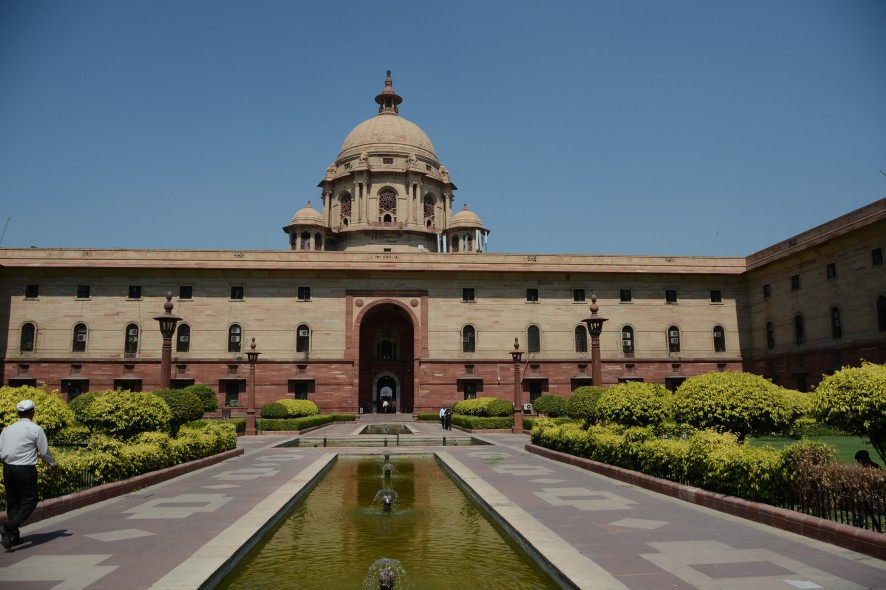The Government has put in place a new framework and an institutional structure for streamlining the environmental clearance for building and construction sector. Briefing media persons on the notification, Minister of State (Independent Charge) of Environment, Forest and Climate Change, Shri Anil Madhav Dave said that this is another step towards decentralization, delegation of powers and enhancing the Ease of Doing Responsible Business.
The notification will come into effect, if States do make the required changes in their building bye-laws. These changes have to be done in consultation with the Ministry. Hence, the Environment Minister has written to all the Chief Ministers and Administrators of Union Territories to take necessary steps for making changes in the building bye-laws.
The Ministry has issued a notification S.O. No. 3999 (E) dated 09.12.2016 for integrating standard and objectively monitorable environmental conditions with building permissions for buildings of different sizes; Category ‘1’ 5000 sq m to 20,000 sq m; Category ‘2’ 20,000 sq m to 50,000 sq m and Category ‘3’ 50,000 sq m to 1,50,000 sq m, with rigorous monitoring mechanism for implementation of environmental concerns and obligations in building projects.
The Notification will be available on the website of the Ministry at http://www.moef.gov.in and http://www.moef.nic.in.
The States will forward the proposed changes in their building bye-laws and rules to the Ministry of Environment, Forest and Climate Change, who in turn will examine the said draft bye-laws and rules and convey the concurrence to the State Governments. After this, it can be finally notified.
3. The important features of the amendment are:
I. Currently, all building and construction covering 20,000 sq. mtr. and above are subject to environmental clearance given by the State Level Environmental Impact Assessment Authority. Under the revised norms, the environmental clearance will now be issued in an integrated manner alongwith the building permission under building bye laws for all building constructions covering 20,000 to 1,50,000 sq. mtr. of built up area.
II. Environmental clearance for built up areas from 1,50,000 to 3,00,000 sq. mtr. will be given by the State Level Authorities subject to EIA while the areas above 3,00,000 sq. mtr. will be approved and cleared by the Union Government. In other words, the Townships and Area Development projects of size ? 3,00,000 sq. mtr. of built up area or covering an area ? 150 ha area are being included in Category “A” of Schedule and appraised at the central level.
III. Area less than 20,000 sq. mtr. will be subject to a self declaration. However, the buildings of size 5000 sq. mtr. to 20,000 sq. mtr. will also follow environmental norms for construction and maintenance phase.
IV. For the first time, it has been envisaged that the Qualified Building Environment Auditors as empanelled by the MoEFCC would assess and certify the building projects.
V. For the first time the provision of self declaration for compliance and also certification by Qualified Building Environment Auditors have been introduced for building and environmental clearance.
VI. It is mandatory to constitute an Environmental Cell in the local authorities to support appraisal, compliance and monitoring of building projects and to provide environmental planning in this area.
VII. The so constituted Environmental Cell will also have independent sectoral experts.
VIII. The Environment Cell in the local authority will process the application and present it in the meeting of the Committee headed by the authority competent to give building permission in that local authority. The Committee will appraise the project and stipulate the environmental conditions to be integrated in the building permission. After recommendations of the Committee, the building permission and environmental clearance will be issued in an integrated format by the local authority.
IX. The project proponent shall submit Performance Data and Certificate of Continued Compliance of the project for the environmental conditions parameters applicable after completion of construction from Qualified Building Environment Auditors every five years to the Environment Cell with special focus on the following parameters:-
1.Energy Use (including all energy sources).
2.Energy generated on site from onsite Renewable energy sources.
3. Water use and waste water generated, treated and reused on site.
4. Waste Segregated and Treated on site.
5. Tree plantation and maintenance.
X. After completion of the project, the Cell shall randomly check the projects compliance status including the five years audit report. The State Governments will enact the suitable law for imposing penalties for non-compliances of the environmental conditions and parameters.
XI.The cases of false declaration or certification shall be reported to the accreditation body and to the local body for blacklisting of Qualified Building Environment Auditors and financial penalty on the owner and Qualified Building Environment Auditors.
XII. No Consent to Establish and Operate under the Water (Prevention and Control of Pollution) Act, 1974 and the Air (Prevention and Control of Pollution) Act, 1981 will be required from the State Pollution Control Boards for residential buildings of built up area up to 1,50,000 square meters.
Ministry of Environment and Forests







